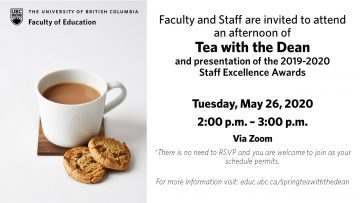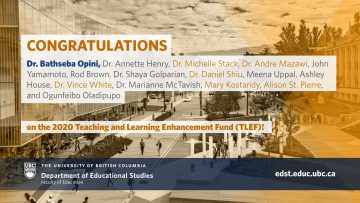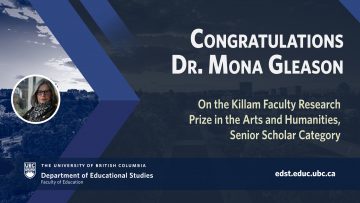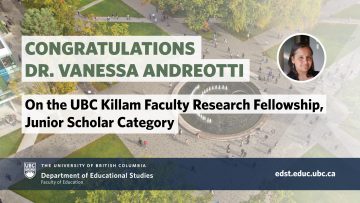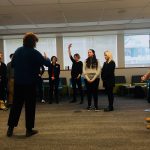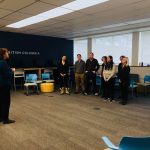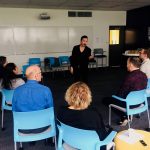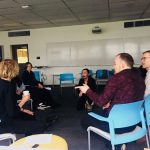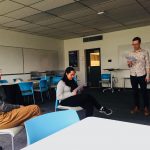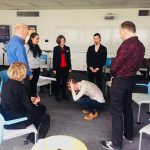Using Research-Based Theatre to Explore Inclusive Pedagogical Practices in Teacher Education
The Transformational Inclusive Pedagogical Practices (TIPP) Project, led by Drs. Jan Hare and Wendy Carr, in partnership with the UBC Research-Based Theatre Collaborative (RBTC), offers Intensives as experiential opportunities for teacher educators. University classroom scenarios are depicted as springboards for discussion, analysis, and exploration of transformative, inclusive pedagogical approaches that consider the multiple experiences and identities of students.
The TIPP Collective, composed of the TIPP project leads, instructors from the Indigenous Teacher Education Program (NITEP) and SOGI UBC as well as RBTC members, Dr. George Belliveau, Christopher Cook and Tetsuro Shigematsu, brings to life university classroom scenarios in which interactions and assumptions include, exclude, marginalize and/or empower scenario participants. These dramatic explorations are shared and debriefed with instructors during Intensives as part of a professional learning process to understand and expand what it means to teach inclusively.
The process has been improvisational and collaborative, beginning with story sharing and building into performed scenarios that are used to spark broader discussion among instructors. To date, the group has created four original scenarios through this approach, all of which explore the intersectional realities of teaching a diverse population of students. Some of the scenarios are based on true stories and enacted through drama for public witnessing at academic events like WestCAST (Teacher Education Conference) as well as during the aforementioned Intensives.
What does it mean to inspire transformative change through drama-based learning strategies among the participants who attend the Intensives? What are the stories that need to be represented to prompt deep, critical exploration? Feedback from participants who attended the first Intensive in November 2019 was considered and incorporated into the next Intensive.
TIPP demonstrates, through portrayal and careful unpacking of difficult situations what it means to address and move forward pedagogically. TIPP explores the multiple perspectives within somewhat common classroom scenarios. What is going on for the instructor? What is going on for Indigenous students? Gender-diverse students? Other marginalized students? How do we teach inclusively? How do we make our classrooms safe spaces for being and learning?
Cook and Belliveau (2018) state, “As an embodied storytelling practice, theatre has the potential to contribute to learning and well-being in community contexts”.
We hope you’ll join us for the next Intensive on February 26, 2020, to take part in a process of pedagogical exploration and brave, transformative professional learning!
For more information, please visit:
Research Based Theatre Collaborative (RBTC): https://rbtcollaborative.ubc.ca/
Indigenous Teacher Education Program (NITEP): https://nitep.educ.ubc.ca/
Sexual Orientation Gender Identity Inclusive Education (SOGI UBC): http://educ.ubc.ca/sogi
WestCAST’s 2020 conference program: https://westcast.educ.ubc.ca/schedule/
Office of Indigenous Education: https://indigenous.educ.ubc.ca/
TIPP’s parent website: https://educ.ubc.ca/tipp/
References
Cook, C., & Belliveau, G. (2018). Community stories and growth through research-based theatre. LEARNing Landscapes, 11(2), 109-126.
TIPP acknowledges that the rehearsal process takes place on the ancestral, traditional, and unceded territory of the hən̓q̓əmin̓əm̓ (Halkomelem) speaking xʷməθkʷəy̓əm (Musqueam) people.
